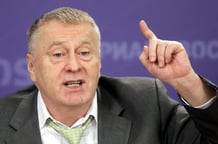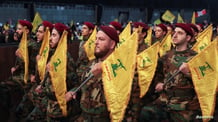
Dubai, UAE: A two-month truce in Yemen, which entered into force, on Saturday, received international and Arab welcome, amid hopes of ending the conflict that exceeded seven years, according to official data for 15 countries, including Turkey, and 5 organizations.
On Friday, the UN envoy to Yemen, Hans Grundberg, announced that the parties to the conflict had agreed to a two-month, extendable truce, with a previous welcome from the Saudi-led Arab coalition, government forces and the Houthis loyal to Iran.
Yemen has previously witnessed several truces since 2015, sponsored by three former UN envoys, punctuated by violations, amid accusations by the two parties to the conflict that they obstructed their success.
But this truce is the “most important”, according to observers, as it allowed a partial reopening of Sanaa Airport (under the control of the Houthis), which has been closed to commercial flights since 2016, with approval for the entry of 18 oil ships to the port of Hodeidah within two months, with the highest rate of fuel access to areas Houthis since the start of the war.
International welcome
The Turkish Foreign Ministry welcomed the agreement , expressing its hope that “the mentioned positive truce step will be followed by the declaration of a permanent ceasefire, and the start of a political solution process throughout the country.”
The ministry affirmed that Turkey “will continue to support the efforts of the United Nations Special Representative at this stage, encourage dialogue and reconciliation among all segments and provide support to the Yemeni people.”
In Washington, the US State Department said that her country “welcomes the announcement of the truce,” calling on “all Yemeni parties, with the entry into force of the truce, to transform their efforts towards securing a permanent ceasefire and participating in a comprehensive political process.”
The United Kingdom also welcomed the announcement of the armistice, stressing that it “represents the best opportunity to alleviate the human suffering of Yemenis and improve the stability of the region.”
In Paris, the French Foreign Ministry said that the truce is “a major step forward that will make it possible to alleviate the suffering of Yemenis and bring hope,” reiterating “its support for the international efforts for a permanent ceasefire and a comprehensive political solution.”
Iran also welcomed the announcement of the armistice, expressing its “hope that this step will constitute a prelude to establishing a permanent ceasefire in the context of reaching a political solution to the Yemen crisis,” according to a statement carried by the Iranian “IRNA” news agency, quoting Foreign Ministry spokesman Saeed Zadeh.
Arabic welcome
On the Arab level, the Saudi Foreign Ministry welcomed the UN declaration, stressing its “support for the announcement of the Yemeni government and the coalition to support legitimacy in Yemen to accept the armistice.”
In Muscat, the Ministry of Foreign Affairs of the Sultanate of Oman, whose country is one of the mediators in resolving the Yemeni crisis, welcomed the announcement of the truce, stressing that it “continues its efforts with the United Nations and the concerned parties with the aim of ending the war and reaching a comprehensive political settlement.”
The Egyptian Foreign Ministry also welcomed the announcement of the armistice, hoping that “the armistice contributes to advancing efforts to reach a comprehensive settlement of the Yemeni crisis.”
In Abu Dhabi, the UAE Ministry of Foreign Affairs announced, with the UN declaration, the start of a truce in Yemen, stressing its “support for all UN efforts to promote prospects for peace and stability in Yemen and the region.”
The Jordanian Ministry of Foreign Affairs also welcomed the UN declaration, describing it as a “positive development” and called for “building upon it to reach progress in the political process.”
The Bahraini Ministry of Foreign Affairs also welcomed the announcement of the armistice, as an “important step to stop the war and reach a political settlement.”
In turn, Djibouti’s ambassador to Riyadh, Dia El-Din Bamakhrama, said in a statement that his country “welcomes the UN declaration,” stressing that it “always and forever urges the Yemeni parties to resort to dialogue and understanding.”
For its part, the Kuwaiti Ministry of Foreign Affairs welcomed the UN declaration on the armistice, stressing the “importance of this step in preparing the atmosphere for the Yemeni parties to enter into political consultations and reach a political solution.”
The Algerian Ministry of Foreign Affairs also announced that it welcomed the approval of the armistice, expressing its “hope that this step would constitute an important step towards reaching a permanent agreement that guarantees a comprehensive settlement of the crisis in Yemen.”
In Doha, the Qatari Foreign Ministry welcomed the agreement on the truce, expressing its aspiration that “the step will pave the way for a comprehensive and lasting ceasefire in Yemen, and to engage (..) in the comprehensive political track.”
International and Arab organizations welcome
In turn, the UN envoy, Grundberg, stressed, Saturday, “the importance of building on this agreement to restore some confidence between the warring parties and to resume a political process aimed at ending the conflict.”
European Union High Representative Josep Borrell also called on the parties to the Yemeni conflict to respect the truce in the country, and to communicate with the United Nations for a permanent ceasefire and the resumption of the political process.
The Arab League, the Organization of Islamic Cooperation and the Gulf Cooperation Council also issued separate statements welcoming the UN declaration.
The Arab League called on “all Yemeni parties to respect the humanitarian truce,” while the Islamic Cooperation expressed its “hope that the truce would alleviate human suffering.”
In a statement, the “Gulf Cooperation Council” also considered that “the announcement comes as an affirmation of the importance that the international community attaches to the Yemeni crisis.”
Yemen has been witnessing for more than 7 years a continuous war between the pro-government forces backed by an Arab military alliance led by neighboring Saudi Arabia, and the Iranian-backed Houthis, who have controlled several governorates, including the capital, Sanaa, since September 2014.













